Review of Maids, The
Introduction
This version of Jean Genet`s play is not only a great piece of `theatre` - it works very nicely as a classy film production too.
Edie Landau, the Executive in Charge of the AFT (American Film Theatre), was originally involved with the `Play of the Week` productions on PBC (when it was `…just Channel 13`) in the late 1960`s, alongside husband and Hollywood Producer, Ely Landau. This was revolutionary TV for the US in that they would insist that the drama remained uninterrupted by commercials, despite the considerable length of some of the productions. Deemed a critical success, this inspired the AFT concept - plays turned into movies, shown simultaneously in theatres across the USA to subscribing members.
`The Maids` was inevitably going to be one of their more controversial productions. Penned by notorious poet turned thief, Jean Genet, it trickles with undisclosed and hinted at perversions and social ambiguities.
Solange and Claire are two maids, `sisters`, who hate their work and detest their employers. When the cat is away though, the mice begin to play and start acting out fantasies that mimic and insult their demanding `Madame`. These surreal enactments, variations on a master/slave theme, are like Freudian therapy revealing dark and unwholesome desires. Fantasy soon blurs with reality with potentially murderous results. In fact, Genet`s play was loosely based on the Papin sisters - real life maids from the 1930`s who were charged with the murder of their employers.
Glenda Jackson is perfectly cast in the role of the domineering Solange, while Susannah York turns in an incredible performance as the less confident, but complicated Claire. Vivien Merchant plays their cruel and deluded Madame, a demanding socialite, with great flair too. The three together are dynamite, and despite the general `wordiness` of this play (the talking never stops), the performances are entirely compelling.
The opening scenes show the dramatic arrest of a man in Paris, and it`s not until a good deal later that we learn that this man is the lover of the maid`s Madame, who they have falsely reported to the police. We then move to an extended period of play-acting between the two sisters that lasts some 30 or 40 minutes, where the dialogue is endless, the moods and emotions vast and the physical action limited by space. Yet it works wonderfully, and perhaps shows why playing these roles has such great appeal to serious actors who want to stretch their limits.
The atmosphere from the outset is steamily provocative, and there`s a brooding evil that underpins the action though, bizarrely, you can`t help sympathising with the plight of the maids. There`s more than a hint at social politics here, and Genet`s hatred of the ruling class permeates every moment.
All the action (more or less) takes place in a single room, the Madame`s boudoir, which could have resulted in a stagy feel to the production. But the incredible camerawork makes this production anything but. It`s technically superb, with some of the most impressively fluid camera moves I`ve ever seen. Pre-steadicam, this is beautifully choreographed, carefully worked out - elegantly complex shots involving moves and elaborate focus-pulls, though they never get in the way of the action, but rather enhance the dramatic tension. Cinematographer Douglas Slocombe (Julia, Raiders of the Lost Ark) must take major credit for this incredible achievement.
The frequent use of mirrors may have been demanded by Director Christopher Miles, and must have been a nightmare to work with for all the crew involved and yet the results are first-class - despite the low budget.
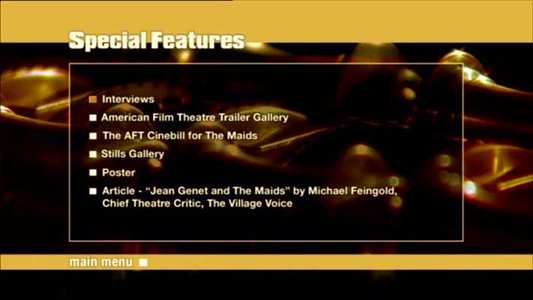
Video
This early 1970`s material has worn remarkably well. This may be due, in part, to the fact that these were aired as theatrical productions on their release for two nights only and have been seen rarely (if at all) since. There must also have been quite a number of prints in existence due to the number of theatres playing the piece simultaneously.
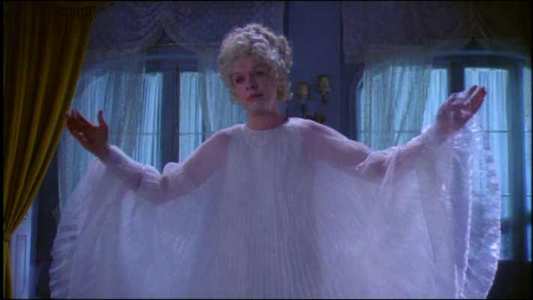
Audio
The Dolby Digital 2.0 is serviceable enough, though the sound recording sometimes errs on the `stagy` - with wide-shots frequently sounding thin and echoey. Much of the dialogue is over sibilant too, showing flaws in the original audio recording. It`s clear that there has been no post-audio-dubbing and this serves as a reminder that this was a budget production after all, despite some truly stunning cinematography.
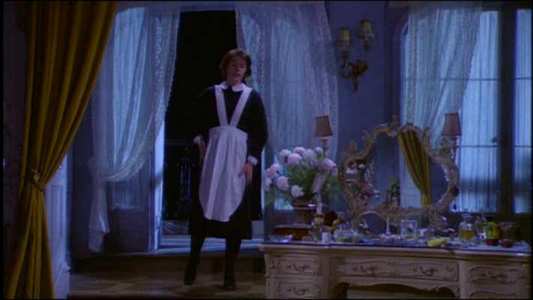
Features
There are a number of fascinating extras included here. Firstly, there`s a contemporary interview with Susannah York, who clearly remembers the performance with great affection, despite the fact that she missed the `airiness of theatre` during the filming, which was at the rather cramped sound-stages of Twickenham Studios.
There`s also a really informative interview with Edie Landau, wife and business partner of Producer Ely, which contains fascinating background. She is engaging, articulate and enthusiastic - which is highly infectious.
Also included is a `Trailer Gallery` with trailers for all the recent AFT releases. (Watch for Leonard Rossiter in a John Osborne play, sounding just like Rigby in `Rising Damp`, despite the medieval clothing!).
There`s a text-based piece entitled `To Oblivion` which is a short Genet biography, as well as a text-based essay on Genet`s theatre.
There`s also a text-based interview with Glenda Jackson who talks about `The Maids` as well as the place of women in modern theatre.
Finally there are the usual superfluous `movie poster` and `stills` for those who like their movies to stand still.
Overall, a very good resource and plenty of background for anyone wanting to extend their knowledge of theatre in general, and Genet`s theatre in particular.
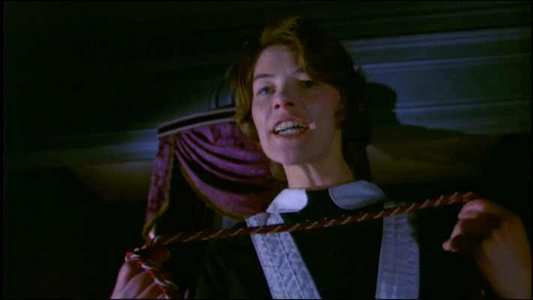
Conclusion
Direct transfers of plays to the silver-screen rarely work. `The Maids` is a glorious exception to this rule with a powerful combination of great performance and excellent direction and cinematography. In lesser hands, this incredibly wordy play might have faltered at the starting post, yet here works magnificently.
It may not be a play to everyone`s tastes - it`s dark, and complex, and it covers much ground, both political and sexual. There`s an underlying atmosphere to the movie that is both dark and sinister, and there`s a tension throughout that makes it compulsive viewing. (Will the Madame return during the play-acting?).
Glenda Jackson and Susannah York are both breathtakingly good in their roles, often moving from despair to ecstasy, from tears to laughter in a single speech.
It`s easy to see the appeal of these demanding roles to any actress trying to stretch their abilities.
Whilst audio does let the team down a little here, commendation must go to the (pre-Steadicam) cinematography of Douglas Slocombe. Despite the low budget, this is amongst the finest shooting I have ever seen for `one room drama`. Really mind-blowing stuff.
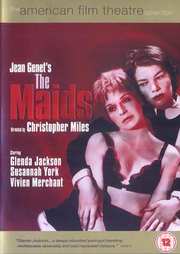
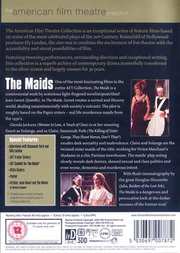




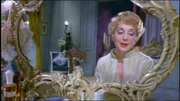
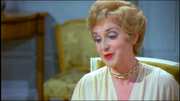
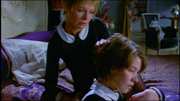
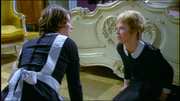

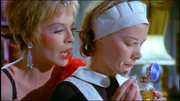
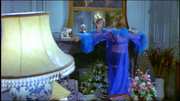
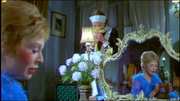
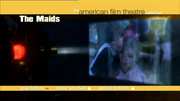
































Your Opinions and Comments
Be the first to post a comment!